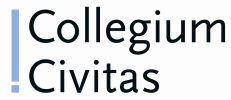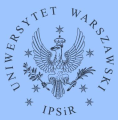The 3rd conference within the Genealogies of Memory framework took place in Warsaw in November 2013. It discussed the relationship between memory and law as well as concepts of justice with reference to post-communist transformations. Conference participants presented the papers showing the diversity of Eastern European experiences in dealing with the past and employing different legal measures to inform collective memory and identity. The keynote address “Justifying Atrocities: Contested Victims” by Elazar Barkan stimulated lively discussions during conference panels, which concentrated on the role of civil society and education in dealing with the past as well as courts’ influence on collective memory.
Read the conference reportAbout Genealogies of Memory 2013
Legal Frames of Memory. Transitional Justice in Central and Eastern Europe
27-29 November 2013, Warsaw
Programme
Conference / Warsaw 2013
27/11/2013 Wednesday
12:15
Welcome address
Rafał Rogulski, director of ENRS
Małgorzata Omilanowska, Under-Secretary of State, the Ministry of Culture and National Heritage
Wojciech Węgrzyn, Under-Secretary of State, the Ministry of Justice
Małgorzata Pakier & Stanisław Tyszka, conference convenors
Małgorzata Omilanowska, Under-Secretary of State, the Ministry of Culture and National Heritage
Wojciech Węgrzyn, Under-Secretary of State, the Ministry of Justice
Małgorzata Pakier & Stanisław Tyszka, conference convenors
13:00
National and Regional Specificities of Transitional Justice Discourses
Cosmin Sebastian Cercel:
Anxieties of the Nomos: Fascism, Communism and Legal Discontinuity in Post-War Romania
Ela Rossmiller:
Subject Positions and Social Antagonisms in the Discourse of Transitional Justice in Poland
Eva-Clarita Pettai:
Transitional and Retrospective: Truth and Justice Processes in the Baltic States
Written presentation: Anna Luleva - Justice Policy and Memory about Communism in Bulgaria. Dynamics and Current Debates
Chair: Nadya Nedelsky
Commentator: Uladzislau Belavusau
Anxieties of the Nomos: Fascism, Communism and Legal Discontinuity in Post-War Romania
Ela Rossmiller:
Subject Positions and Social Antagonisms in the Discourse of Transitional Justice in Poland
Eva-Clarita Pettai:
Transitional and Retrospective: Truth and Justice Processes in the Baltic States
Written presentation: Anna Luleva - Justice Policy and Memory about Communism in Bulgaria. Dynamics and Current Debates
Chair: Nadya Nedelsky
Commentator: Uladzislau Belavusau
15:00
Coffe break
16:00
Restorative Justice: Law, Memory and Property
Marcin Romanowski:
Law and Politics Regarding Property in Germany - Disputes over Confiscations in the Soviet Zone of Occupation during 1945-49 (in Polish)
Katarzyna Katana:
Legal Issues Related to Restitution of Nationalized Real Estate as Demonstrated by the Property Expropriated by the Warsaw Decree (in Polish)
Marcin Wróbel:
Expropriation in Tatra Mountains National Park as a “Lack of Restorative Justice”. Outline of a Social Conflict in Podhale
Written presentation: Kate Korycki - Memory Conflict and Law – a Theory
Chair: Joanna Wawrzyniak
Commentator: Stanisław Tyszka
Law and Politics Regarding Property in Germany - Disputes over Confiscations in the Soviet Zone of Occupation during 1945-49 (in Polish)
Katarzyna Katana:
Legal Issues Related to Restitution of Nationalized Real Estate as Demonstrated by the Property Expropriated by the Warsaw Decree (in Polish)
Marcin Wróbel:
Expropriation in Tatra Mountains National Park as a “Lack of Restorative Justice”. Outline of a Social Conflict in Podhale
Written presentation: Kate Korycki - Memory Conflict and Law – a Theory
Chair: Joanna Wawrzyniak
Commentator: Stanisław Tyszka
18:00
Coffe break
18:30
Keynote lecture by Elazar Barkan: Justifying Atrocities: Contested Victims
Chair: Dariusz Stola
28/11/2013 Thursday
9:30
Retributive Justice: Dealing with Perpetrators
Rivka Brot:
Transitional Jewish Justice: Jewish Collaborators on Trial in Jewish Displaced Persons Camps, 1945-1950
Agata Fijalkowski:
Legal Frames of Memory: The Albanian Experience
Marcin Warchoł:
Prescription of Communist Crimes (in Polish)
Chair: Christiane Wilke
Commentator: Lavinia Stan
Transitional Jewish Justice: Jewish Collaborators on Trial in Jewish Displaced Persons Camps, 1945-1950
Agata Fijalkowski:
Legal Frames of Memory: The Albanian Experience
Marcin Warchoł:
Prescription of Communist Crimes (in Polish)
Chair: Christiane Wilke
Commentator: Lavinia Stan
11:30
Coffe break
12:00
Private and Public Pasts in the Archives
Tomasz Stryjek:
Between Transitional Justice and Politics of National Identity. The Role of the Ukrainian National Memory Institute in the State Policy towards the Soviet Legacy in Ukraine (in Polish)
Stanislav Labjak:
The Transformation Process and Current Problems of the National Memory Institute of Slovakia
Saygun Gökarıksel:
Two Bodies of the Accused: Ethics of Knowledge and Memory and Polish Secret Service Archives
Chair: István Rév
Commentator: Antoni Dudek
Between Transitional Justice and Politics of National Identity. The Role of the Ukrainian National Memory Institute in the State Policy towards the Soviet Legacy in Ukraine (in Polish)
Stanislav Labjak:
The Transformation Process and Current Problems of the National Memory Institute of Slovakia
Saygun Gökarıksel:
Two Bodies of the Accused: Ethics of Knowledge and Memory and Polish Secret Service Archives
Chair: István Rév
Commentator: Antoni Dudek
14:00
Coffe break
15:00
Justice Within and Beyong Law: The Actions of Civil Society
Nadya Nedelsky:
Transitional Justice and Civil Society in Slovakia
Lavinia Stan:
Civil Society and Post-Communist Transitional Justice: The Romanian Case
Elena Glushko:
Hope for Justice: The Dream of Lustrations in Present-Day Russian Society
Chair: Yaroslav Pasko
Commentator: Yifat Gutma
Transitional Justice and Civil Society in Slovakia
Lavinia Stan:
Civil Society and Post-Communist Transitional Justice: The Romanian Case
Elena Glushko:
Hope for Justice: The Dream of Lustrations in Present-Day Russian Society
Chair: Yaroslav Pasko
Commentator: Yifat Gutma
29/11/2013 Friday
9:30
Naming Crimes, Writing History: Courts' Educational Role (I)
Joachim Savelsberg:
Court Interventions against Human Rights Perpetrators: Between Current Representations and Memories of the Past
Ivor Sokolić:
Heroes, Courts and Normative Clashes: How Are Domestic War Crimes Trials Affecting Norm Building in Croatia?
Magdalena Saryusz-Wolska:
Reeducation, Denazification, Schuldfrage: Images of the Third Reich in the German Public Sphere 1945-1949
Chair: Adam Czarnota
Commentator: Mark Osiel
Court Interventions against Human Rights Perpetrators: Between Current Representations and Memories of the Past
Ivor Sokolić:
Heroes, Courts and Normative Clashes: How Are Domestic War Crimes Trials Affecting Norm Building in Croatia?
Magdalena Saryusz-Wolska:
Reeducation, Denazification, Schuldfrage: Images of the Third Reich in the German Public Sphere 1945-1949
Chair: Adam Czarnota
Commentator: Mark Osiel
11:30
Coffe break
12:00
Naming Crimes, Writing History: Courts' Educational Role (II)
Aleksandra Gliszczyńska-Grabias:
Communism equals or versus Nazism? Central and Eastern European Unwholesome Legacy in ECtHR
Mark Osiel:
Can Courts Deliberately Alter Collective Memory? Novel Remedies from the Inter-American Court of Human Rights
Christiane Wilke:
East of the Rule of Law
Written presentation: Hannes Püschel - Coming to Terms with the Past through Penal Law? Denial of Historical Atrocities and Public Use of Soviet Symbols in (Central and Eastern) European Penal Law
Chair: Joachim Savelsberg
Commentator: Jiří Přibáň
Communism equals or versus Nazism? Central and Eastern European Unwholesome Legacy in ECtHR
Mark Osiel:
Can Courts Deliberately Alter Collective Memory? Novel Remedies from the Inter-American Court of Human Rights
Christiane Wilke:
East of the Rule of Law
Written presentation: Hannes Püschel - Coming to Terms with the Past through Penal Law? Denial of Historical Atrocities and Public Use of Soviet Symbols in (Central and Eastern) European Penal Law
Chair: Joachim Savelsberg
Commentator: Jiří Přibáň
14:00
Coffe break
15:00
Roundtable Discussion: Historical Justice and its Present Legislation
Moderator: Jiří Přibáň
Discussants: Adam Czarnota, Yaroslav Pasko, Eva-Clarita Pettai, István Rév
Discussants: Adam Czarnota, Yaroslav Pasko, Eva-Clarita Pettai, István Rév








